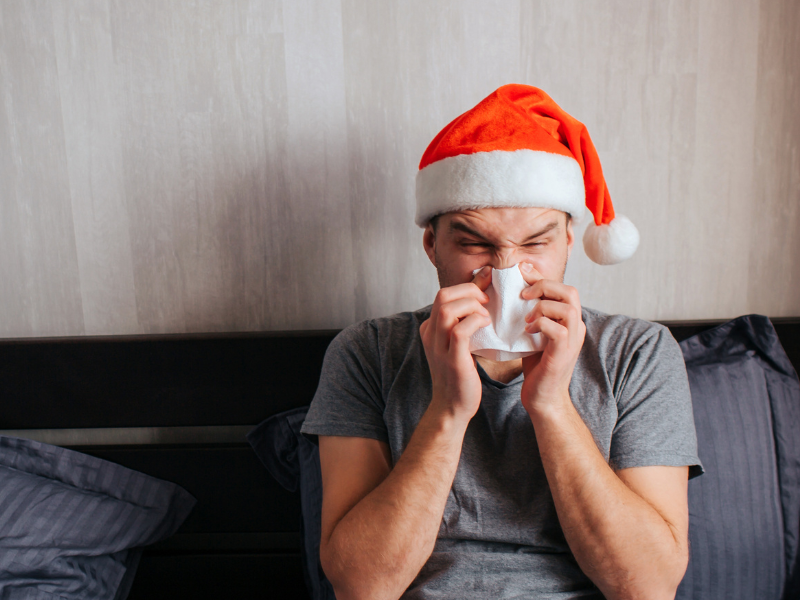
As we enter the holiday season, looking forward to spending time with friends and family, it is essential to remember that it is also flu season. Influenza (flu) is a virus that leads to cough, sore throat, runny nose, fever, body aches, headaches, and fatigue. So, as you enjoy holiday meals and parties, remember these simple steps to decrease your risk of becoming sick with the flu.
- The most important step is getting a yearly flu vaccine. Being vaccinated reduces the overall risk of being infected, decreases the severity of illness if you become infected, and reduces the risk of serious complications.
- Frequent hand hygiene is also effective. Alcohol-based hand sanitizer or washing hands with warm water and soap after touching door handles, covering a cough or sneezing, and before eating are great ways to avoid most infectious diseases.
- Covering your face with your hand or elbow when coughing or sneezing will also aid in preventing the spread of flu through respiratory droplets. Respiratory droplets are the water droplets you expel every time you breathe, cough, or sneeze. If you have the flu, the respiratory droplets you breathe out contain the virus particles.
- Avoid touching your eyes, nose, and mouth; germs often enter our bodies this way.
- Frequent disinfecting of commonly touched surfaces will reduce the amount of germs contaminating them. Besides wiping down kitchen counters, tables, and doorknobs, consider other common "touchpoints" in your day-to-day routine. When did you last disinfect your cell phone or vehicle's steering wheel? Those are probably some smart places to start!
Together, these minor tasks can significantly reduce the risk of contracting the flu at home, at work, and as you travel.
If You Get The Flu
If you start experiencing flu symptoms, the best way to prevent infecting others is by avoiding social gatherings, physically distancing yourself from others, and wearing a face mask if you must be near other people are the best ways to prevent spreading the flu to others. These precautions should be taken for seven days from the onset of symptoms or 24 hours after fever and respiratory symptoms have ended (without using fever-reducing medications such as acetaminophen or ibuprofen).
Your Primary Care Provider Can Help
As soon as you notice symptoms, contact your primary care provider. They can provide anti-viral medications to shorten the duration and decrease the severity of symptoms. Anti-viral medications must be started within 48 hours of the symptoms begin. A primary care provider may recommend anti-viral medications to help protect high-risk individuals and household contacts after exposure to someone infected with the flu.
Even though treatment for the flu is available, prevention is always best. Remember to get vaccinated, cover coughs, disinfect, and avoid others if they develop symptoms to ensure you avoid the flu and fully enjoy the upcoming holiday season.